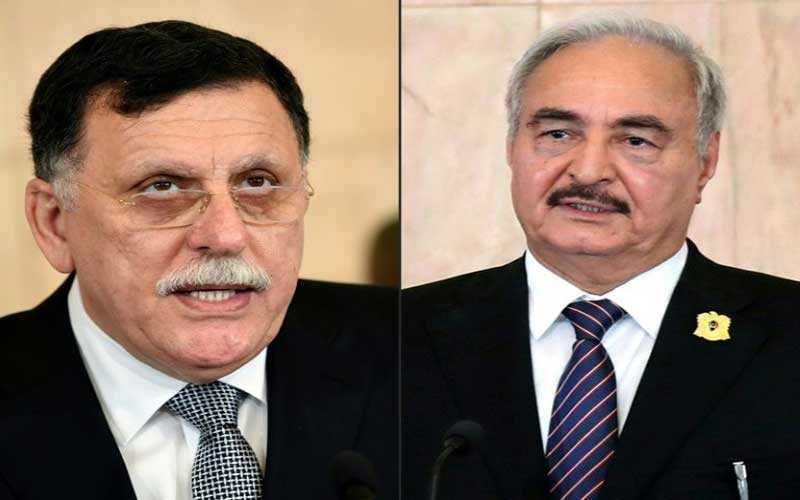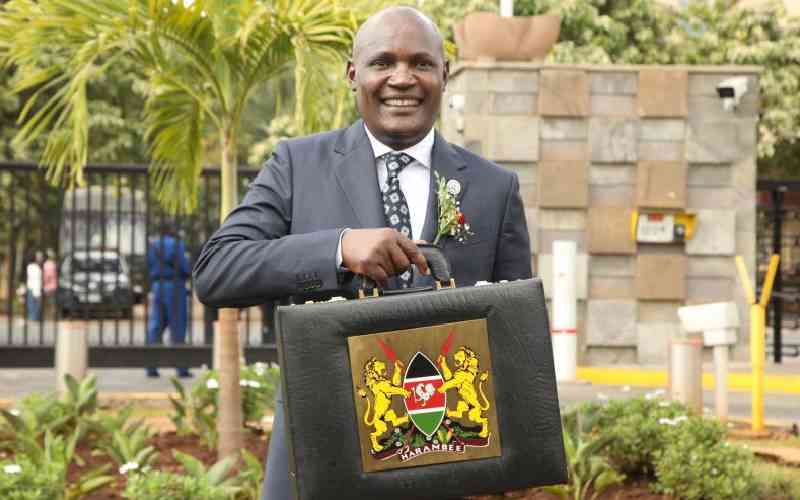×
The Standard e-Paper
Stay Informed, Even Offline

Libya's UN-recognised Prime Minister Fayez al-Sarraj (left) and his adversary, General Khalifa Haftar
Oil-rich Libya has been torn by violence since the 2011 toppling and killing of longtime dictator Moamer Khadafi in an uprising backed by a NATO bombing campaign.







